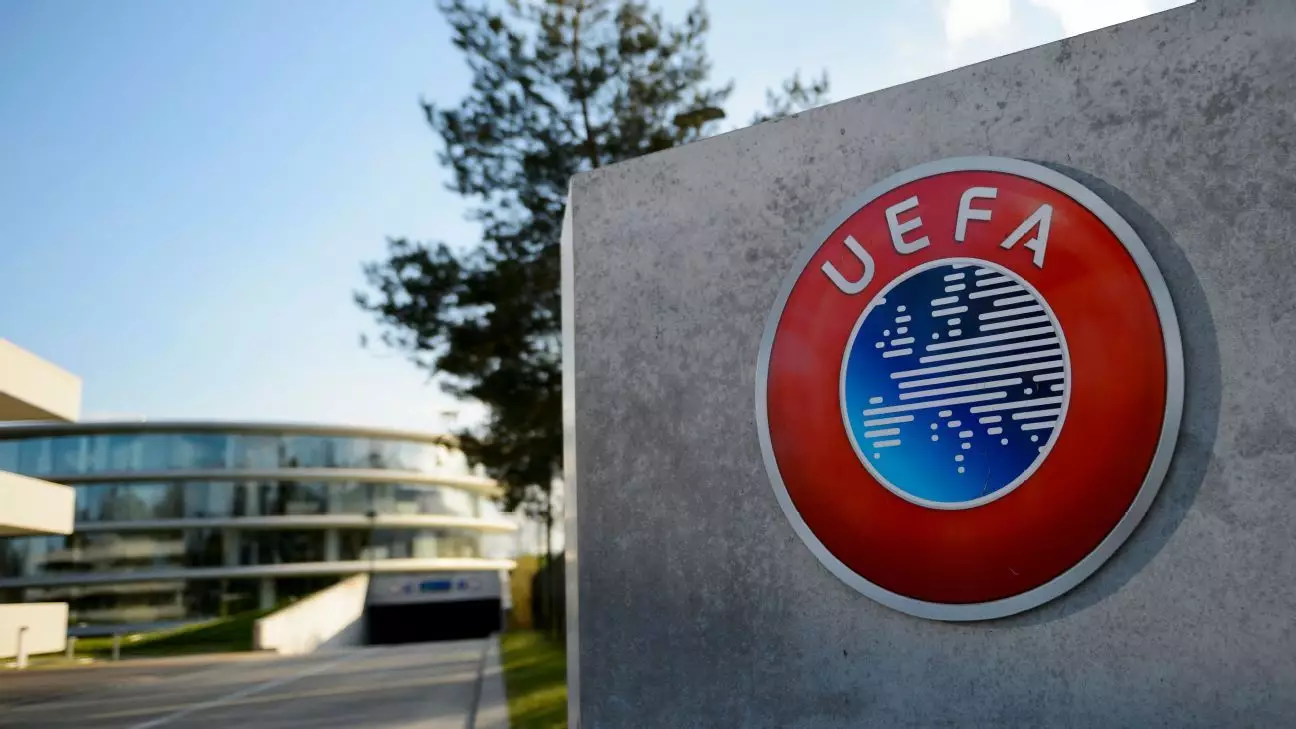In recent years, the once seemingly permissive financial environment of European football has faced increasing scrutiny, and UEFA is now wielding its power more assertively than ever. The hefty fines imposed on clubs like Chelsea and Barcelona mark a pivotal shift in how the governing body enforces fiscal responsibility among the sport’s most prominent teams. This crackdown appears to underline a broader strategic vision: fostering sustainable growth rather than allowing unchecked spending to undermine the integrity of competitive balance. The record €31 million fine levied against Chelsea is not just a punitive measure but a bold statement that the days of blind financial excess are numbered.
What makes this development particularly compelling is how it signals a cultural change within top-tier clubs that have historically prioritized winning at any cost. Chelsea’s lavish spending spree under Todd Boehly exemplifies this trend—yet, despite their ambitions, the club now faces the price for overstepping financial boundaries. The fines, especially when they reach record-breaking levels, relay a clear message: the economic stability of the sport is paramount. Clubs cannot continue to inflate their balance sheets with reckless abandon, especially when UEFA has the tools for precise economic oversight. This turning point invites a rethink of the very philosophy underlying modern football management.
Financial Transparency and Long-Term Stability: A New Paradigm
UEFA’s move toward more rigorous financial monitoring is not purely punitive but also rooted in the importance of stability within the industry. The fines for Barcelona’s excessive losses reveal a recognition that short-term profitability and long-term viability must go hand in hand. As the sport continues to grow commercially—driven by lucrative Champions League revenues, broadcasting rights, and global branding—the risk of unrelated financial crises or mismanagement threatens the very foundation of European football. UEFA’s evaluations don’t just penalize; they serve as a blueprint for responsible stewardship.
Chelsea’s explanation of ongoing transparency efforts suggests the clubs are beginning to accept this new regulatory landscape, albeit with reservations. Their assertion of a “strong upward trajectory” indicates acknowledgment that financial discipline is ultimately in their best interest. Yet, scandals surrounding related-party transactions, such as the sale of hotels by Chelsea, betray a less-than-perfect adherence to transparency, highlighting areas where clubs must improve. The overall message is this: financial misconduct, whether through deliberate misstatement or reckless spending, now risks severe consequences—an encouraging sign for those advocating fair play.
Implications for Club Ownership and Future Strategies
In a broader context, the recent UEFA sanctions underscore the evolving responsibilities of club owners, particularly those from outside traditional European football hubs. Tables are turning, revealing the risks associated with aggressive investment strategies driven by new ownership models like that of Boehly’s Chelsea. The fine coincided with the club’s continued spending, emphasizing that even the most ambitious clubs cannot escape the long arm of financial regulation without consequences.
This tension between ambition and regulation compels clubs to craft healthier, more sustainable development plans. The days of relying solely on the allure of signing high-profile stars or asset-selling to balance the books are coming under scrutiny. Instead, clubs are now encouraged to focus on building their brands, developing youth, and cultivating revenue streams that align with UEFA’s strict targets. This shift might well serve as a catalyst for a more competitive, balanced league system where financial muscle alone does not guarantee success.
Setting a Precedent: The Future of European Football Governance
The record fines against Chelsea and Barcelona are likely to set a precedent that extends beyond the immediate penalties. Clubs across Europe will now see that UEFA has both the tools and the resolve to enforce compliance. Ambitious clubs must assess whether their financial strategies are sustainable or risk coming under UEFA’s microscope—and incur punitive consequences. This new era prioritizes prudent fiscal management, transparency, and long-term planning, reshaping the competitive landscape.
If UEFA continues on this trajectory, we could see a significant decrease in reckless spending, leading to a more level playing field. Smaller clubs and emerging markets may find it easier to compete without the shadow of financially overstretched giants. Meanwhile, established clubs might focus more on building sustainable models, investing in infrastructure, or developing their youth academies—investments that align with UEFA’s core objective: stability and fairness.
Without a doubt, these penalties signal a bold step toward a future where financial discipline is as essential as on-field prowess. The balance of power may gradually shift from clubs that can afford to spend indiscriminately to those that prioritize smart, responsible management. This transformation will define the next chapter of European football—one where integrity and sustainability are no longer secondary to immediate success, but central to the game’s long-term health.

